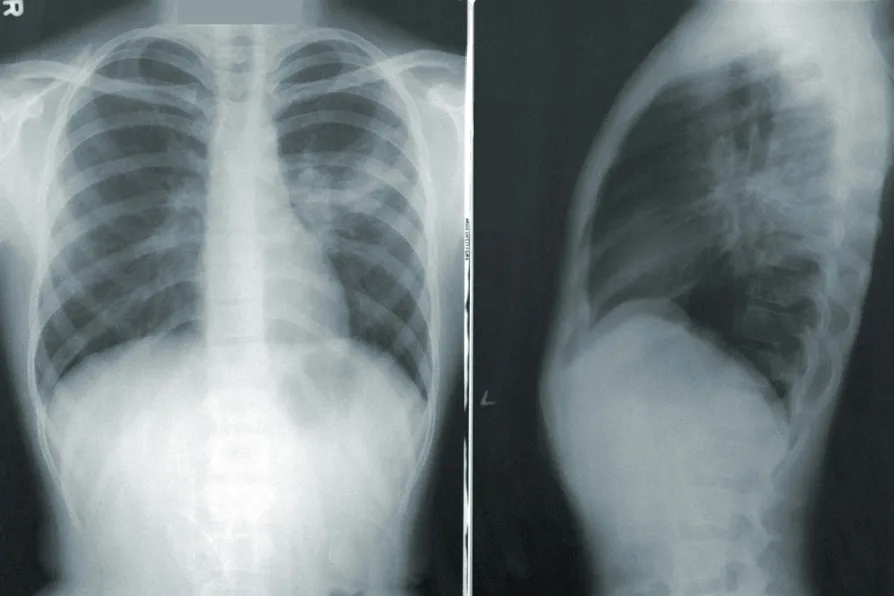
 X-ray of lungs [Pic: CDC / Creative Commons]
X-ray of lungs [Pic: CDC / Creative Commons]
HOSPITALS are at risk of becoming “overwhelmed” due to a sharp rise in people needing urgent help for lung conditions, a charity has warned.
Asthma and Lung UK (ALUK) said there has been a 23 per cent increase in emergency hospital admissions for respiratory conditions such as asthma and chronic obstructive pulmonary disease in just two years.
The charity said patients are not receiving consistent care throughout the year, leading to a predictable spike in emergency cases every winter.
It warned that these “regular” winter crises are the result of “dismal” delivery of routine care for people with lung conditions.
Between April 2024 and March 2025, there were 2,268,865 emergency hospital admissions for respiratory conditions in England, compared with 1,841,010 between April 2022 and March 2023, an increase of 427,855.
Analysis of NHS data shows that emergency admissions for respiratory illnesses surged in December last winter.
In total, there were 1.1 million admissions for breathing emergencies during the winter months.
The charity also highlighted 405,000 “bounce-back” admissions between April 2024 and March 2025, where patients returned to A&E within a month of being discharged.
ALUK chief executive Sarah Sleet said: “Failure to give consistent year-round care to people with lung conditions is pushing the NHS to breaking point with too many A&E admissions that could have been avoided.
“Our analysis shows that tragically, the situation is getting worse, not better. This must change.”
She warned that higher-than-expected flu levels and a potentially severe outbreak this year could leave hospitals struggling to cope.
The charity is calling for a national strategy for respiratory illness to prevent avoidable hospitalisations.
Patient Tamzin Usher, 25, from Durham, who regularly needs hospital help as viruses and cold weather trigger her severe asthma, said: “There have been times when I have struggled to get a GP appointment or had to wait to see a specialist when my asthma symptoms have started to get worse, and it doesn’t help.
“I don’t think I’d end up being hospitalised as much if I could get the care I needed quicker whenever my asthma did flare up, so I could manage it better without having to call for an ambulance.”













